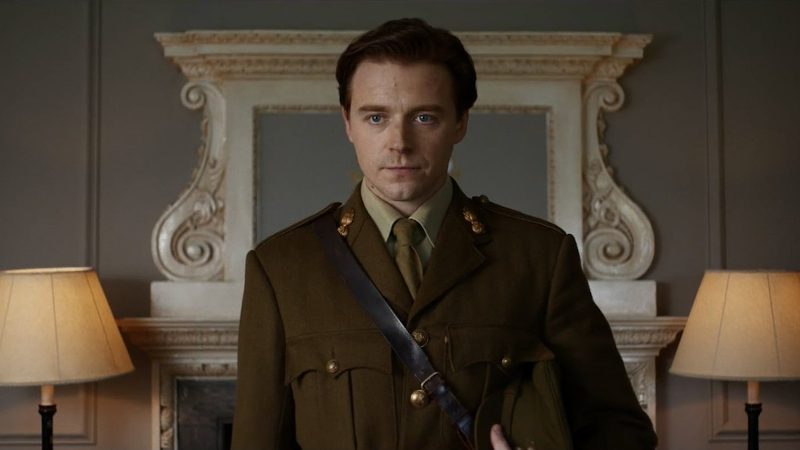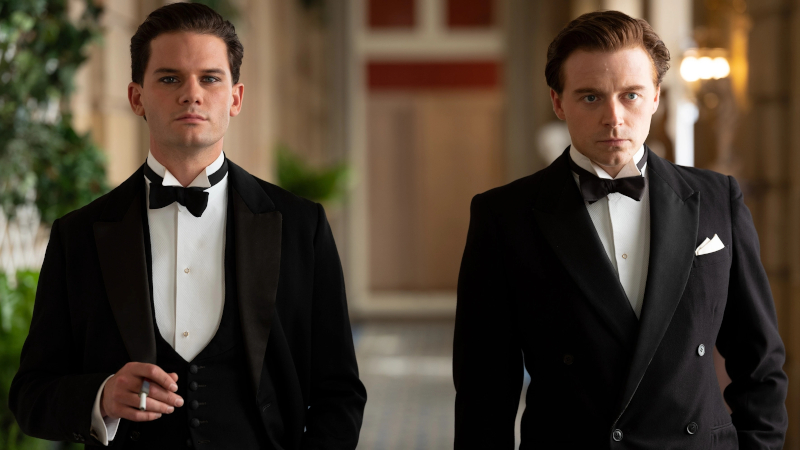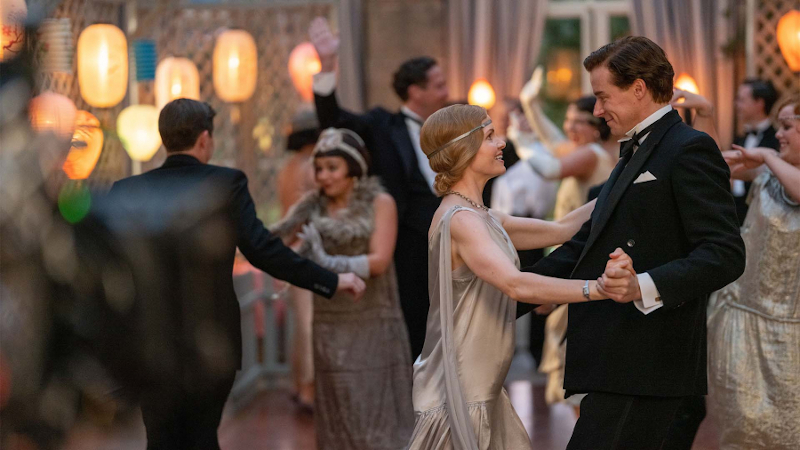Director – Terence Davies – 2021 – UK – Cert. 12a – 137m
****
The life of First World War poet Siegfried Sassoon, his homosexual lifestyle and his heterosexual marriage – out in cinemas on Friday, May 20th
It’s been five years since Davies’ previous film A Quiet Passion (2016) and the curious thing is, both these films have been about poets and poetry. The earlier film was about Emily Dickinson, with its discussion about religion and Christianity very much to the fore; the new film is about Siegfried Sassoon and while the Catholicism he embraced in later years is in the mix, alongside that element Davies’ research revealed others of far greater interest to the writer-director, notably that Sassoon was gay. As you might expect, the first half hour or so concentrates on the First World War, but more time is spent in the middle of the film exploring some of Sassoon’s gay relationships with a small section towards the end skimming over his later years and heterosexual married life.
Siegfried Sassoon (Jack Lowden) saw action in the First World War and had the utmost respect for the men under his command – and they for him. He was appalled by the conditions under which they found themselves serving. He believed in the war’s cause when he joined up, but came to a view that the war was being prolonged for the wrong reason and that a mixture of politics and the military command were to blame. He wrote a letter to high command expressing his dissatisfaction, expecting to be court-martialed and perhaps face a firing squad, hoping that this would provide a platform to disseminate his opinion and perhaps get something done to improve the situation.

Behind the scenes, his literary mentor Robbie Ross (Simon Russell-Beale) pulled strings to ensure the court-martial never happened, a strategy about which Sassoon was furious. In the event, he was diagnosed with ‘shell shock’ and packed off to Craiglockhart War Hospital near Edinburgh.
At Craiglockheart, the film shows him confronted by an unsympathetic chief medical officer (Julian Sands) and getting on rather better with the friendlier and pragmatic Dr. Rivers (Ben Daniels) who is also gay and suggests Siegfried talk to another soldier being treated there, Wilfred Owen (Matthew Tennyson). The two hit it off, but their friendship is tragically cut short when Owen is subsequently killed in the final week of the conflict after being declared fit for active service. Like Sassoon, Owen was both gay and a poet. Today, their poetry is what both men are remembered for.

Gay himself, Davies is clearly fascinated by this aspect of Sassoon in a time when homosexual acts were illegal. Sassoon’s post-war life saw him moving in the rarefied, English literary and theatre worlds. He entered into a series of gay relationships, including one with the larger than life but ultimately narcissistic Ivor Novello (Jeremy Irvine). His other lovers included Stephen Tennant (Anton Lesser). I knew nothing about this (or later) periods of Sassoon’s life, so all this was a revelation (as I’m sure it must have been for Davies when researching and writing his film). The film goes into quite lengthy emotional detail about how these relationships worked and, ultimately, fell apart.
Eventually, Hester Gatty (Kate Phillips), who has met him some time previously at a dance, seeks Siegfried out and he ends up marrying her. She is fully aware of his sexual preferences, but that doesn’t seem to have stopped their marriage working, at least for a time, and she gave him a son, George.

Davies employs the device of a couple of older actors playing the couple as they age (Peter Capaldi and Gemma Jones, with the former cropping up in a few earlier scenes too) but never really explores why the marriage fell apart (which it did after 12 years, when they separated). All he shows us is the couple’s son George (Richard Goulding), now grown to adulthood, who becomes concerned about his ageing father’s inability to look after himself properly and moves him into his own home, which appears to be a good experience for Siegfried.
You feel, though, that Davies has less of a grip on the period of Siegfried’s marriage and what happened after than he does either on the gay, literary / theatre times or the period spend at Craiglockhart. Davies, a former Catholic, is clearly interested in Sassoon’s late conversion, but although that’s present here it’s not explored at any great depth. Davies similarly fails to explore the illegal gay man’s taking refuge in legal marriage, a fascinating subject in terms of how things worked at that period of time.
Nevertheless, a lot of thought, time and effort has gone into putting Benediction together, and you’ll come out knowing a lot more about Sassoon than you did when you went in.
Benediction is out in cinemas in the UK on Friday, May 20th.
Trailer:
Read my alternative review in Reform magazine.
